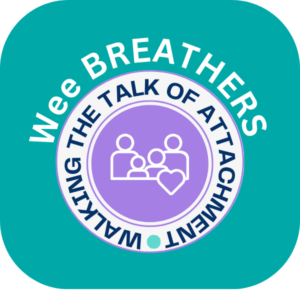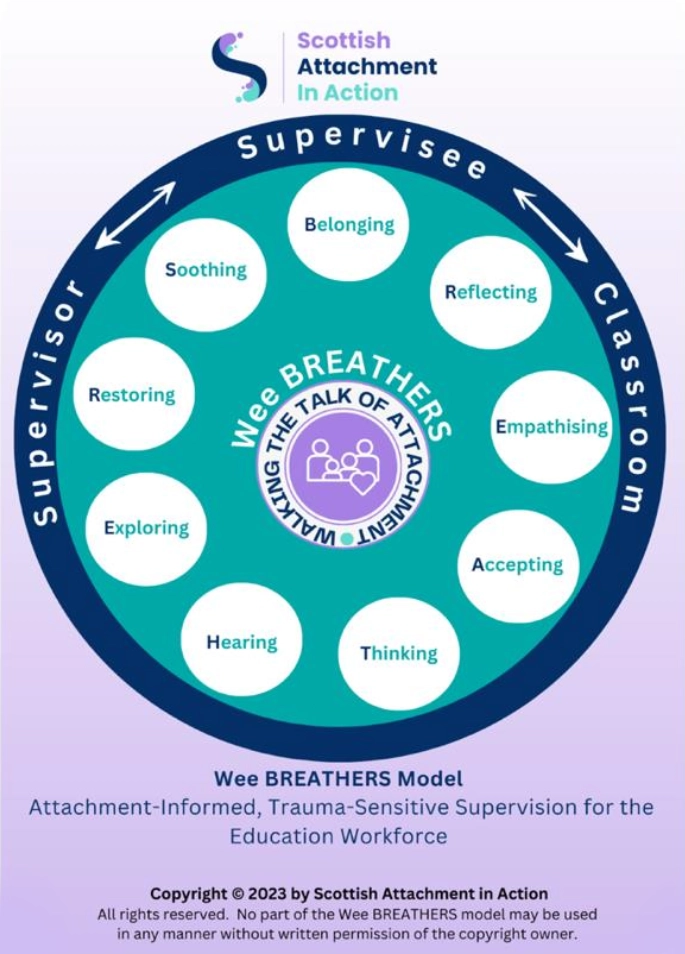‘Making Scotland the best place in the world to grow up and learn’ is one of the many commitments which have provided the policy and legislative context for life in Scotland, over the past decade.
SAIA’s research ‘Mapping Attachment-Informed and Trauma-Sensitive Practice in Scottish Education’ echoes The Promise, that an attachment and trauma-informed workforce built upon supportive relationships will enable Scotland to keep The Promise.
‘Schools in Scotland must provide space and opportunity for all members of school staff to develop kind, supportive relationships with care experienced children.’ Promise P71.
However, there is currently no consistent structure in place to provide staff with safe and confidential spaces to gain insight into the needs of pupils in their classrooms who have experienced disrupted attachment and, or trauma. Teachers act as ’emotional containers’ for the children in their care. They support those who are overwhelmed, distressed and sometimes abusive and are expected to soothe, listen, contain, and work magic.
Practitioners need at least one supportive containing relationship, somewhere that stressful experiences can be explored, reflected upon, and learned from. Wtihout access to this type of support, teachers are at risk of feeling isolated in trying to help pupils with extreme levels of distress without access to appropriate opportunities for emotional regulation themselves. The potential for teachers to reach burn out, taking extended sick leave, leaving the profession early or taking premature retirement due to poor mental or physical health is a real threat to our education system.
The General Teaching Council for Scotland reported recently that more than 1,300 teachers have left the profession within the first five years of their career since 2018.
New figures obtained by Tes Scotland show almost one in five probationer teachers on this year’s induction scheme had opted out by January.
Teacher absence in Scotland hits highest level in over a decade. Teachers in Scotland took an average of 6.8 sick days in 2022-23 – the highest level of absence since councils started tracking the data in 2010-11.
For children and young people to have a better outcomes we need healthy teachers.
Scottish Attachment in Action has received funding from The Promise Partnership, Corra foundation on behalf of Scottish Government to lead a test for change, offering reflective spaces to education practitioners, supporting supervision to become and essential component of their practice.

SAIA researched supervision models used in other professions as well as models that have been tried previously within education to see how best supervision could be delivered. Through collaboration with practitioners and young people, we developed an education specific framework based on attachment theory. Our Wee BREATHERS model has connection at the heart.

The Lines Between Accessible Social Research – The Lines Between was commissioned to carry out an external evaluation of our “Wee BREATHERS” programme. Using a range of data gathering methods, the project demonstrated positive impacts across a number of areas including;
Reducing workplace stressors such as isolation in role, demands and competing priorities, Improved workplace relationships, Improved ability to meet the needs of the young people they support, Greater awareness of attachment theory, Greater ability to understand and respond to challenging behaviour/trauma Better work/life balance and family life,
“I find the space very rewarding to talk about the stresses of work, how it affects your life outside of Nursery and how to manage these stresses. The space itself works for me as I am not very confident and do not enjoy talking about my feelings, but this space encourages me to do so and therefore offloads stresses when I talk about them aloud.”
We are delighted to see the real impact of Attachment in Action, and to add to the evidence on the importance of Reflective Practice within Education;
for further information you can download the evaluation report below,